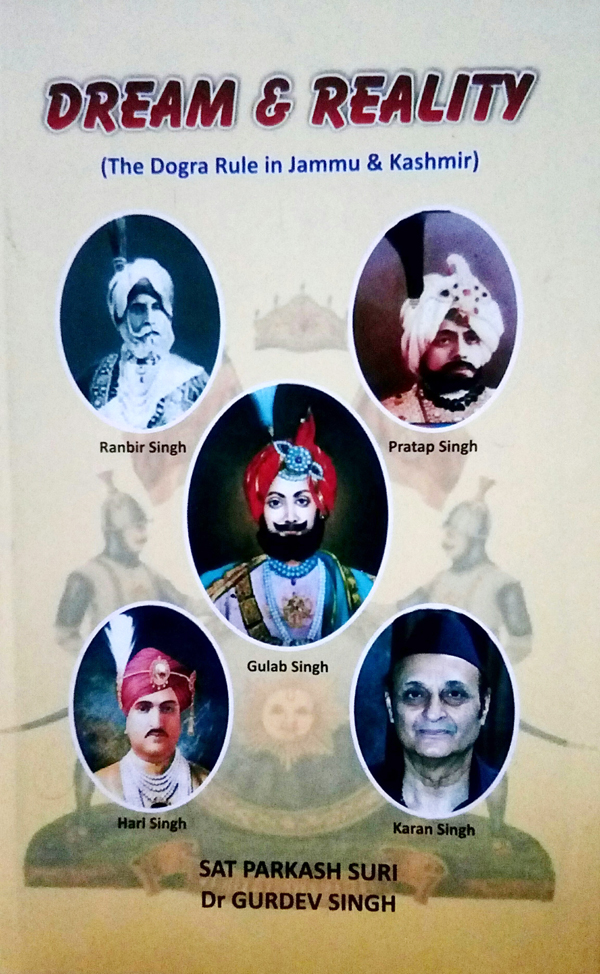Dream & Reality-The Dogra Rule in Jammu and Kashmir
By Sat Parkash Suri and Dr. Gurdev Singh
Dr. S.L. Abrol
The book entitled ‘Dream & Reality-The Dogra Rule in Jammu and Kashmir’ intends to show that Jammu and Kashmir state as it stood on the map of India at the time of partition was founded by Maharaja Gulab Singh towards the middle of 19th century by virtue of the Amritsar Treaty executed on 16th March 1846 between Gulab Singh in person and representatives of the British Governor-General of India Lord Hardinge. Maharaja Gulab Singh tagged the three regions of the state namely Jammu. Kashmir, and the frontier districts of Ladakh and Baltistan conquered by his most trusted General, Wazir Zorawar Singh into a single political entity in view of the distinct cultures.
It was a rare example in the Indian History when Gulab Singh appointed his only surviving son, Ranbir Singh at the throne of the state during his life time. Maharaja Ranbir Singh did not change the basic structure of rule adopted by his father and in addition framed criminal and civil laws which were consolidated into Ranbir Dandh Bidhi popularly known as Ranbir Penal Code (RPC).
Long spell of Maharaja Pratap Singh’s rule brought peace, security and political consciousness in the state besides he initiated plethora of reforms for the betterment of his subjects.
Maharaja Hari Singh’s rule became synonymous with reforms and pro-people policies which he effectively implemented. Under the garb of stand-still agreement Pakistan committed perfidious aggression against the state in October 1947 only to annex valley for whimsical Mohd. Ali Jinnah to celebrate Eid in Srinagar. His calculations were shattered by the arrival of the Indian forces under the command of Lt. Col. Dewan Ranjit Rai after Maharaja Hari Singh offered irrevocable instrumental accession with Indian Union that gave absolute authority to India to defend the state.
Lord Mountbatten’s pro-Pakistan inclinations and reluctant attitude towards Maharaja Hari Singh further complicated the situation when on his insistence Pt. Nehru dragged the Kashmir issue to UNO. Sardar Vallabhbhai Patel, the Deputy Prime Minister off India remained a mute spectator to this fiasco who had decided the fate of 565 Princely states.
But a consistent campaign of vilification launched against the Maharaja Hari Singh by the new powers in Delhi as well as in the state led to his ouster from his princely state. The moment came on 20th June 1949 when Maharaja Hari Singh appointed his son as the regent of the state to exercise his royal sovereign powers. Maharaja Hari singh adopted a road to isolation and sealed his lips forever stoically.


